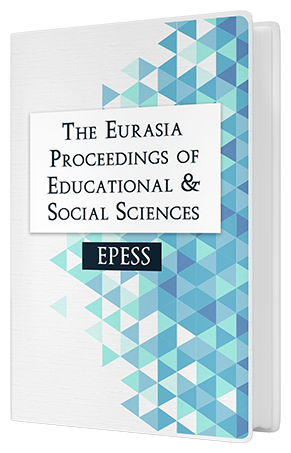Engineering Sustainable Education by Selection The Most Comprehensive Topics
Keywords:
Education, Comprehensive topics, Electrical engineering, BLDC motorAbstract
The rapid developments of society in all areas, their reconciliation with each other in a scale that didn’t exist before, increasing the degree of integration, adding new knowledge exponentially, have increased the need to find new ways to make learning process more attractive, in full compliance with practice, in order to create concepts and skills that will allow the students to get orientated towards the labor market. Nowadays, different school subjects cannot be taught separately from each other. Topics should be comprehensive and treated in a way in order to complete the requirements to achieve the objectives.In the area of electrical engineering the newest model BLDC motor [Brush Less Direct Current Motor] has been taught by integrating designing, electronics, microcontrollers and by different methods of automatic control.Through complex assignments and projects the intertwining of knowledge in different fields is achieved, leading to the increase of teamwork skills, in order for the students to view it in a more critical way. The lesson is focused in the role that this engine plays in environmental protection, which is analyzed in different ways like effectively managing the usage of different resources while constructing it, in the absence of harsh sounds and frequencies, and in a higher efficiency. In other words, using less energy to complete the task. This complies well with the flexibility and adaption concept that this motor possesses and helps in problem solving. The assimilation of knowledge, is shown with higher results in understanding and achieving different concepts and requirements.Downloads
Published
Issue
Section
License
Copyright (c) 2018 The Eurasia Proceedings of Educational and Social Sciences

This work is licensed under a Creative Commons Attribution-NonCommercial-ShareAlike 4.0 International License.
The articles may be used for research, teaching, and private study purposes. Any substantial or systematic reproduction, redistribution, reselling, loan, sub-licensing, systematic supply, or distribution in any form to anyone is expressly forbidden. Authors alone are responsible for the contents of their articles. The journal owns the copyright of the articles. The publisher shall not be liable for any loss, actions, claims, proceedings, demand, or costs or damages whatsoever or howsoever caused arising directly or indirectly in connection with or arising out of the use of the research material. All authors are requested to disclose any actual or potential conflict of interest including any financial, personal or other relationships with other people or organizations regarding the submitted work.




